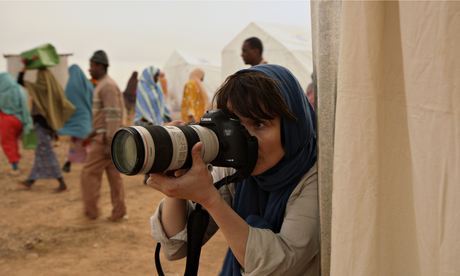
Erik Poppe's A Thousand Times Good Night is a well-intentioned film about a war photographer's personal crisis – but I found something questionable in its forced and unearned emotional moments and the frankly rather insufferable performance from Juliette Binoche in the lead role. She plays Rebecca, a photographer respected for her personal courage and for getting powerful images from war zones. But when she returns to her husband Marcus (Nikolaj Coster-Waldau) after a brush with death, she finds him angry at her neglect of him and their two children.
It is a promising start for a drama, and in fact the opening sequence in Kabul is genuinely tense, as Rebecca takes sensational pictures showing the reality of jihad. But Binoche's performance – tiresomely radiating a martyred integrity – is mannered and self-conscious, and her character's professional work is naively imagined.
Who was the all-important fixer in Kabul who got her access to that extraordinary scene at the beginning? Whoever it was somehow manages to set her up with another very similar assignment later in the movie, despite the terrifying fiasco of the previous event – and yet his or her work is casually passed over.
The handsomely bearded Marcus's picturesque job as a "marine biologist" is equally preposterous and their house in Ireland a colour-supplement-type fantasy. Something is wrong with this picture.

